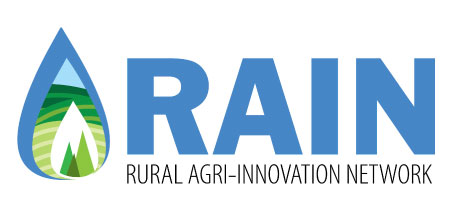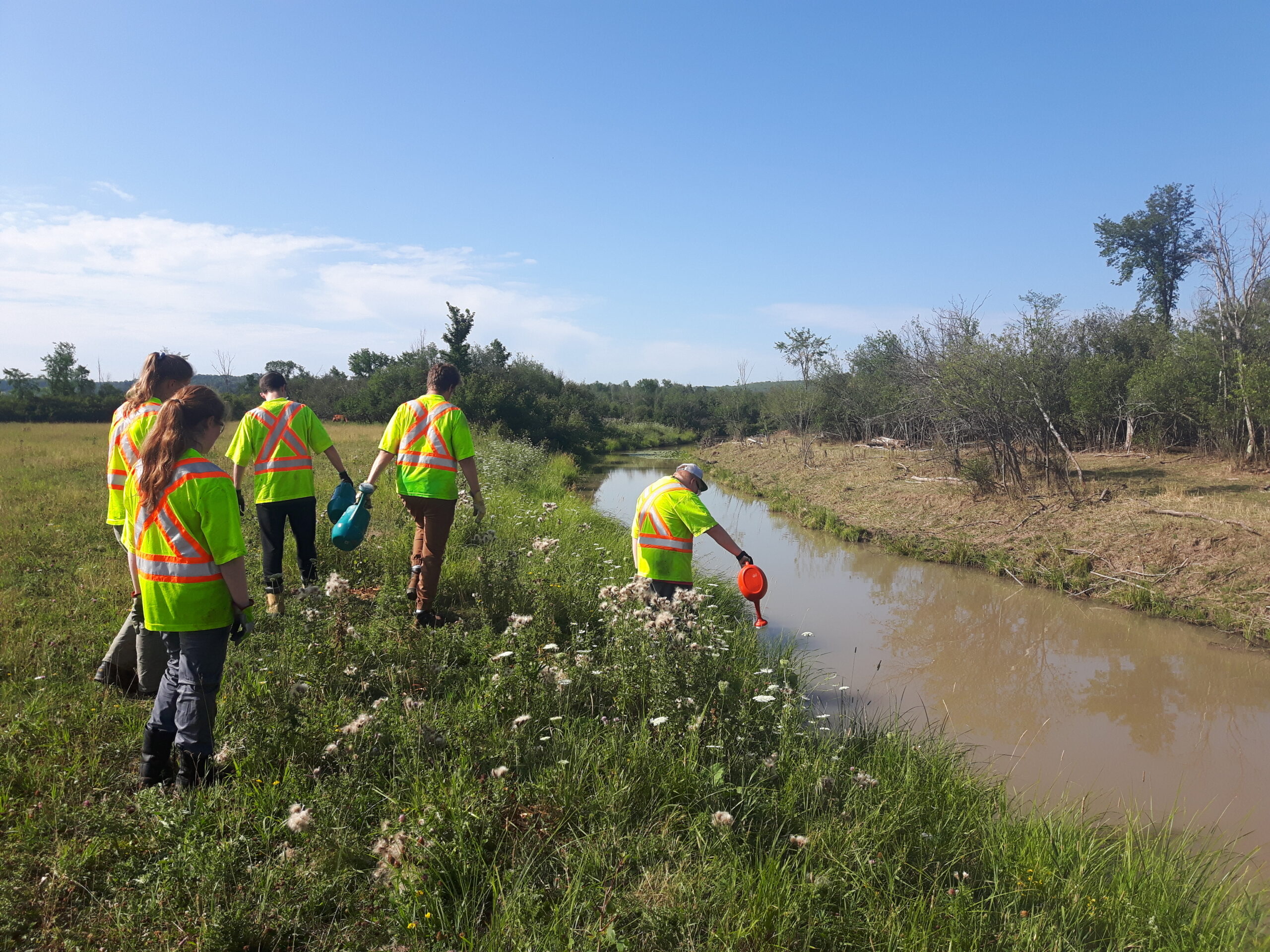A riparian zone is an area next to rivers, streams, lakes, and wetlands. It is usually made up of water plants and saturated soils, along with ecosystems associated with these areas. Riparian zones serve the very important role of preventing soil erosion, which improves water quality, benefits fish health, and maintains a sustainable shoreline. Without an established Riparian zone consisting of trees and shrubs erosion can occur quickly, wearing away the shoreline, allowing nutrients to be leached from the soil, and allowing cattle to access the river.
In the case of Thessalon in the Municipality of Huron Shores of the Algoma district, the lack of an established Riparian zone combined with the movement of cattle in and out of the river, and significant water quantity through the river has caused significant erosion, decreased water quality and increased sedimentation within the river.
Overall health and preservation of local watersheds and habitat is our main priority on this project. By preventing cattle from entering waterways, and ensuring erosion is slowed down on banks by planting tree, those natural habitats can continue to thrive. By continuing to improve and protect the ecosystem of those waterways, the river and habitats around the river will thrive. Keeping those waterways free from pollution due to animals is a big priority, all while involving the community in engaging activities.
With the help of volunteers and staff members, 375 meters of shoreline is planned to be fenced off, and 400 shrubs will be planted along the shoreline of the Thessalon River. Species that will be planted include: Grey Dogwood, Ninebark and Meadow Sweet Alba Spirea. Volunteers are welcomed and encouraged to come out and participate. Online workshops will be held for volunteers which cover erosion, riparian zones, proper tree planting techniques, and identification of native species.

